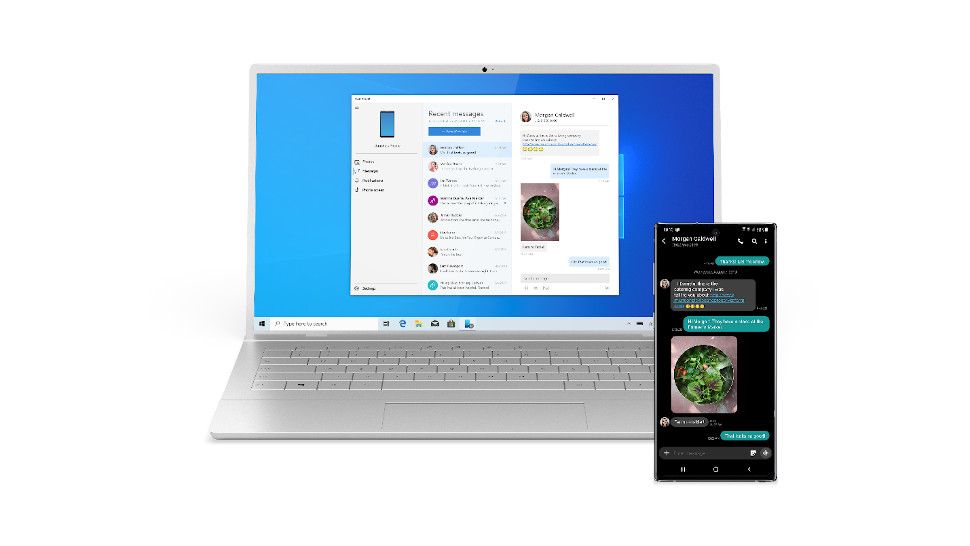An idea whose time has come cannot be stopped. When Reinhold Möller talks about the future of work, he likes to quote the French scripture Victor Hugo, to whom this sentence is ascribed. The idea that Möller believes will outlast the pandemic is working from home. He even goes a step further and advocates tele-community offices.
The now 83-year-old Möller was mayor of Retzstadt from 1984 to 2002. During this time he had already propagated telework, as the home office was called at the time. Retzstadt developed into a model village in terms of digitization. The “Teledorf Retzstadt” with the tele community offices developed by him was one of the projects with which the Free State even took part in the EXPO 2000 world exhibition in Hanover.
Möller: “Huge economic benefit”
Ultimately, the project failed. “Or you let it fail,” says Möller looking back. But the way it is with a good idea: it cannot be stopped. He regrets that it took the pandemic to do this, which gave the home office a significant boost. But if it works, it can turn into something good.
Many companies currently experience working from home as an advantage for employers and employees. It can work if the child isn’t whining because kindergarten is closed or the student needs help with math homework because home schooling isn’t working.
But Corona will go, working from home will stay. Reinhold Möller is therefore interested in a post-pandemic concept. “The economic benefit of working from home is enormous,” he says. He sees this as a great opportunity to revitalize the village structures. However, one should not stop halfway.
<!–
He recommends the establishment of tele-community offices, as there was already an experiment in Retzstadt in the 1990s. These are office workplaces in a building that are occupied by employees from various industries. The infrastructure of an office with printer, digital technology and a common room can be used together. This counteracts the argument that people become lonely due to teleworking or home office.
As mayor, Reinhold Möller experienced the massive emigration of workers from Retzstadt. Increasing mobility promoted this development. At the same time there were improvements in the communication network. ISDN was the state of the art in the 1990s. This enabled the transmission of texts, language and moving images, so that there were considerations that the commuters from Retzstadt could just as easily do their work in their home environment.
The increasing digitization ?? back then it was still called telematics ?? opened up new possibilities. In the mid-1990s, the vacant town hall in Retzstadt offered six teleworking positions. These were well staffed with employees from various industries. When that went well, an empty youth hostel was bought in the community, in which another 30 workplaces were to be set up, half of which were occupied at the wedding.
Teledorf Retzstadt at the EXPO
With this concept, Retzstadt was the first project of its kind in Bavaria and was therefore proposed by the Ministry of Agriculture for participation in EXPO 2000. Looking back, Möller says that from his point of view this was the beginning of the end for the project. Because in order to participate in the EXPO, the Free State was required to join forces with other partners. So the district of Main-Spessart was brought on board, which then had the say in the GmbH. From Möller’s point of view, however, the district has shown no real interest in it. The project withered until it was dissolved.
Möller is convinced that the tele-community offices can be an important building block for the future of work. The economic benefit is enormous. He has balanced all the pros and cons. For example, an employee saves a lot of money on travel expenses. He has calculated this using the example of a route from Retzstadt to Würzburg.
With a mixed cost rate of fuel, depreciation and maintenance of 39 cents per kilometer and a distance of 40 kilometers over 220 working days, this would add up to over 3400 euros per year. Converted to the whole of Germany, with ten million commuters who can theoretically work from home, this is 34 billion euros. Added to this is the time saved, the value of which is difficult to quantify financially.
No commuter stress
There are many other positive effects. For motor vehicle insurance companies, the risk of accidents is reduced, there is no commuter stress, the housing market in the metropolitan areas is relieved because companies can part with expensive office space. This can already be determined, according to Möller. Studies have shown that rents for offices in large cities are currently falling. In the conurbations, the parking areas are relieved.
Möller also sees positive effects on the place of residence of the employees. Purchasing power is not wandering, while commuters have so far been shopping on the way to work. Villages, which were mostly only sleeping villages due to the absence of out-commuters, are being revitalized by the people. Traffic routes are noticeably relieved and in times of climate change, carbon dioxide emissions from exhaust gases are reduced. Möller estimates the annual overall economic savings of a commuter traveling alone at 20,000 euros per year.
Of course, there are also concerns, Möller admits. Working from home demands greater personal responsibility on the part of the employee, because his work performance is more difficult to control. But, says Möller, in today’s working world every employee has to be measured by his results. This also applies to the workers in the home office.
To talk to the head office
Möller believes that another argument against home office is relevant, but also invalid. Personal contact with colleagues in your own company could wither or be lost. For some decisions it is important to sit across from each other. But, he says, it is already possible to bring your colleagues into the office life-size on a white wall and to exchange ideas with them. And should a face-to-face conversation be necessary, it is not forbidden to meet at the head office.
So that there is no loneliness of the employees, Möller sees the future in tele-community offices. These will come; Möller is convinced of this. As Victor Hugo said: “A strong idea cannot be stopped.”
Coworking Space
Source: ins
–
–


